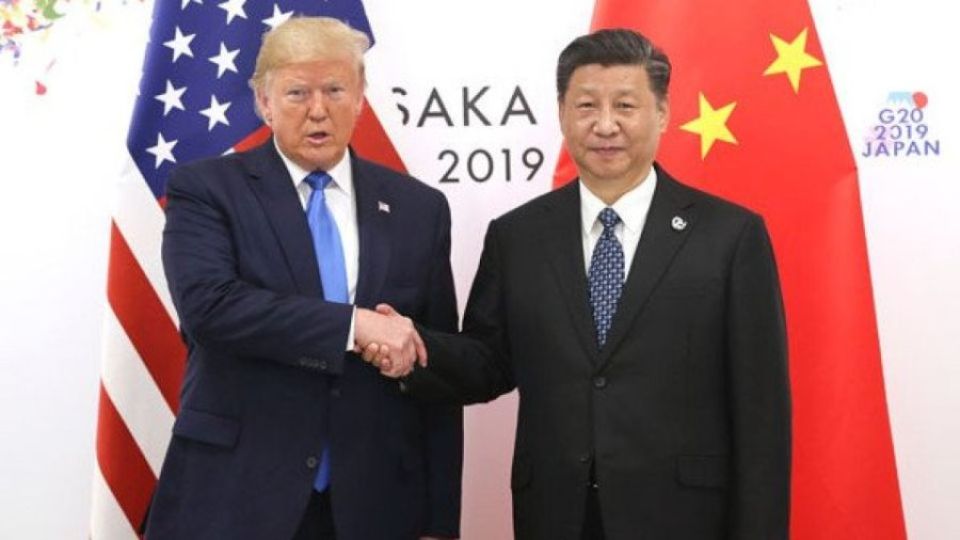November 13, 2024
SINGAPORE – US President-elect Donald Trump will be tougher on China when he returns to the White House, compared with his first term, but experts at a forum organised by The Straits Times say it may not be all doom and gloom.
“Whether it’s trade, diplomacy, security, I expect Trump to take a more hardline, competitive, confrontational approach towards China,” said Mr Blake Berger, a consultant at the Asia Society Policy Institute, a US-based think-tank.
Speaking at a panel discussion on US-China relations at the ST Asia Future Summit in Singapore on Nov 12, Mr Berger said Trump, who has just won a second term as US president, had proven to be “transactional, unpredictable, unilateral” in his first presidential term between 2017 and 2021.
Now that Trump has decided to pick his next administration team based on loyalty rather than expertise, people like former US chief of staff John Kelly will not be around to serve as “guard rails” to rein him in, Mr Berger said.
US media reported on Nov 12 that Trump has picked China critics Marco Rubio and Mike Waltz for the respective roles of secretary of state and national security adviser.
Mr Berger said he expects former US trade representative Robert Lighthizer, if given a role in the administration, to “march towards economic decoupling” with China.
However, Professor Chen Dingding, an international relations expert at Jinan University in southern China, thinks that while the US-China relationship may worsen under Trump, it at least will not be as bad as the relations between the US and Russia now.
“China survived Trump 1.0 and will likely survive Trump 2.0,” Prof Chen said, speaking at the same panel discussion. He pointed out that between 2018, when Trump started a trade war with China, and 2023, China’s trade with the US went up and not down.
“As long as the US consumers need goods and services from China and the other markets, I’m a little bit positive,” he added.
Trump has said he will impose tariffs of up to 60 per cent on Chinese imports and at least 10 per cent on goods from the rest of the world. He may also introduce other trade-restrictive measures, such as export controls and limits on Chinese investment.
Ms Selena Ling, chief economist and head of global markets research and strategy at OCBC Bank, said that she thinks Trump may not really act on the tariff threats.
“My feeling is that all these numbers are floating around – 60 per cent, 10 per cent, 20 per cent – it’s all an opening salvo,” she said.
“He does want to strike a deal with China, and depending on what he gets out of China, maybe he’ll go a little bit easier on the rest of the world.”
Her team calculated that if the US imposes a 60 per cent tariff on China, that would shave 1 percentage point off Chinese economic growth; a 10 per cent to 20 per cent tariff on Asean member countries would knock off 0.7 to 1.3 percentage points from their growth.
She predicts that Asean will be motivated to deepen its regional integration, so as to become more resilient to any damage brought about by US tariffs.
ST’s US bureau chief Bhagyashree Garekar, who had travelled all over America to take the pulse of voters before the recent presidential election, is also optimistic that Trump 2.0 would not be as bad as some might think.
“When he takes office on Jan 20 (2025), he’s already a lame duck, right? I think he will be looking to consolidate his legacy, and he cares about the economy, so I think there’s a limit to the damage he will allow to happen,” she said.
Economists have said that if the US were to impose high tariffs, it will cause inflation, which will also hurt US consumers. Ms Garekar said that if the Republicans want to win the US midterm elections about two years later, then Trump would have to keep the ground sweet.
On the issue of Taiwan, which has been a sore point between the US and China, again the experts differ.
Mr Berger said that if Trump believes Taiwan is “taking advantage” of the US, as the President-elect has oft repeated to the US media this year, then Taiwan “may be in a little bit of a precarious position”.
Prof Chen is more upbeat. “We have good news, because No. 1, Trump is not interested in conflict, especially military conflict. So for the next four years, we should be assured there will be no military conflict.”
He also said that because Trump possibly sees Taiwan as a “bargaining chip” that can be negotiated away, this could benefit China.
China views self-governed Taiwan as its territory, a claim which Taipei rejects.
OCBC was the presenting sponsor of the event.

